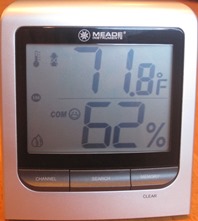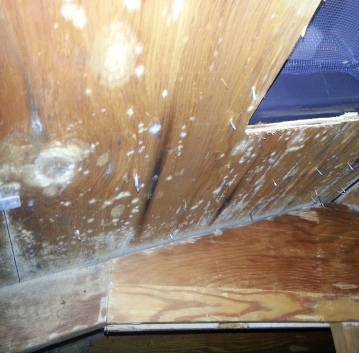Find a Mold Specialist Now
Click or Call, Toll-Free 24/7
Best Hygrometer
When selecting the best hygrometer, or relative humidity sensor, you’ll need to consider your needs. Do you need the hygrometer for indoor use or for outdoor use? The best for measuring humidity in a single room or the best for measuring humidity in several rooms at the same time? The one with the display that is easiest to read? The most affordable one? As you can see, there are a number of factors to consider. Of course, the most important factor is probably how accurate a hygrometer is; who cares about all the nice features it may have if it doesn’t give you an accurate reading?
How a Humidity Sensor Works
Many hygrometers use a human hair to measure humidity. Human hair expands and contracts based on the amount of humidity in the air. A needle gauge measures the change in the hair and then the humidity level is displayed on an LCD screen. It might sound like an odd way for a precision instrument to work, but consider what your own hair does in very humid weather. Does it get frizzy? Unmanageable? Many people complain of “bad hair days” in humid weather because human hair is so sensitive to moisture in the air.
Other hygrometers use two thermometers to measure humidity. One thermometer has a wet bulb and one has a dry bulb. Water evaporating from the wet bulb causes its mercury to drop. The amount of humidity in the air can be determined by comparing the temperature readings of the two thermometers.
When selecting the best hygrometer for your home, though, it doesn’t really matter which type of humidity sensor you purchase. Both types can do the job. Just focus on finding one that is known to be accurate and that has the features you need.
How a Humidity Sensor Helps You
So how will a humidity sensor help you? By monitoring the humidity in your home, you can make informed decisions about whether or not you have a humidity problem and what you might need to do about it. With so much information in the news these days about toxic mold in the home and all the health problems it causes, people are particularly interested in monitoring humidity levels in their homes and want to take steps to reduce the humidity if necessary. Mold almost always grows in warm, humid areas; you almost never see mold in cool, dry places.
If mold in the home is a concern for you, or if you just want to feel more comfortable and get rid of that stuffy feeling in your house, a hygrometer will give you the information you need in order to decide whether or not to purchase a dehumidifier. If you have a dehumidifier, a hygrometer will let you know if the dehumidifier is doing its job.
A hygrometer just gives you more information about your home environment, much like a thermometer does. By the way, some hygrometers come with thermometers and display both the relative humidity and the temperature in an area. Many people find that particularly convenient.
The Best Hygrometer
The best hygrometer we’ve found is made by Ambient Weather. It’s flexible; you can hang it on the wall or sit it on a table or desk. You can use it indoors or outdoors. It comes with one console sensor and one remote sensor, but if you want to monitor more areas of your home you can purchase up to seven additional sensors. It tells you the temperature as well as the humidity level. It’s highly accurate. It’s also affordable. Follow this link to learn more about the Ambient Weather Hygrometer on Amazon.com.
Additional Reading:
Relative Humidity Sensor - Additional information to help you determine if you need a hygrometer in your home.
House Humidity - Information about house humidity levels and the problems that can be caused by high or low humidity levels. How home humidity meters can help you to keep your home comfortable and safe.
What Is A Hygrometer - Learn about the importance of having a hygrometer to prevent mold growth in your home.
Return From Best Hygrometer Review To Our Black Mold Health Symptoms Home Page






